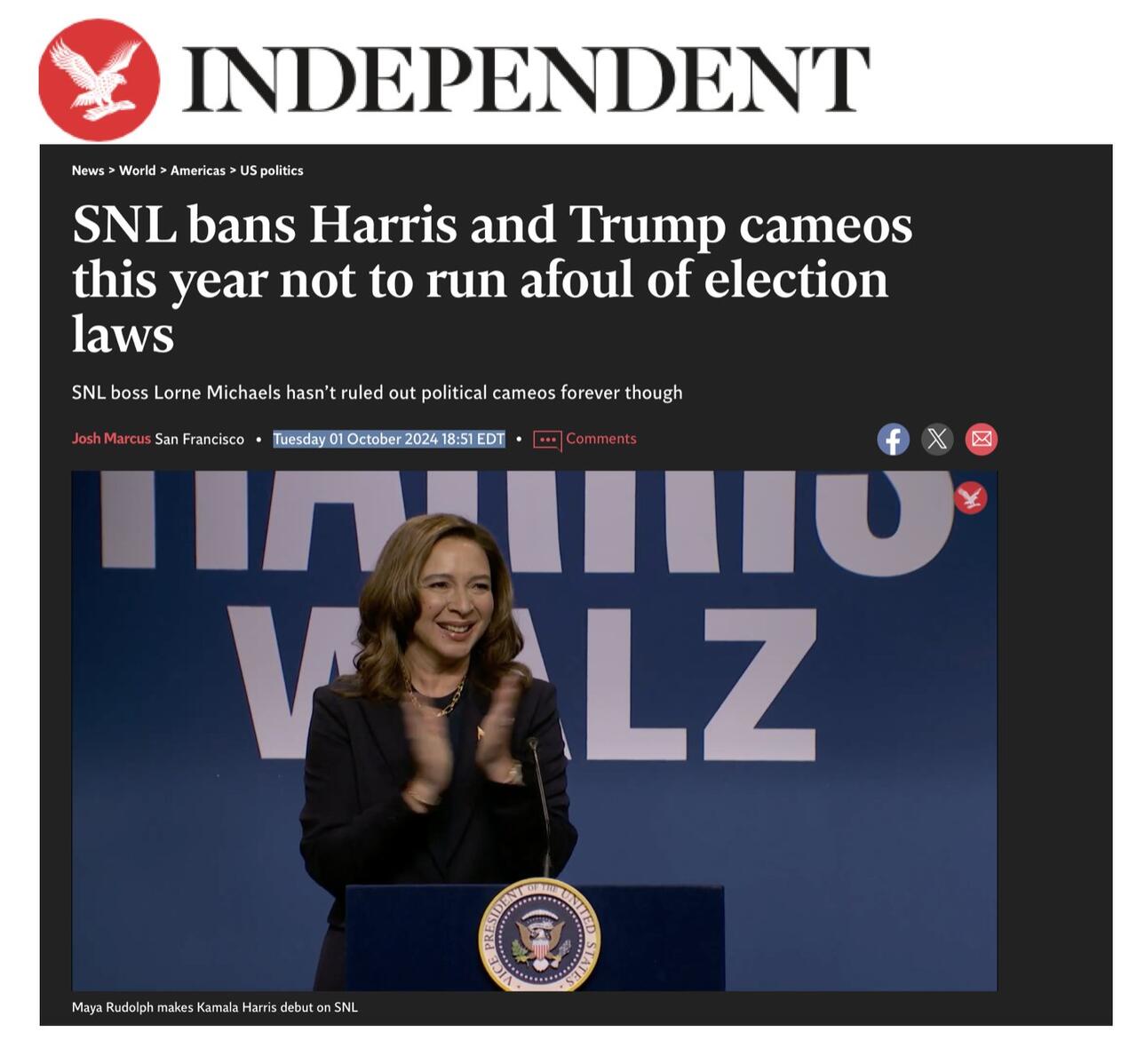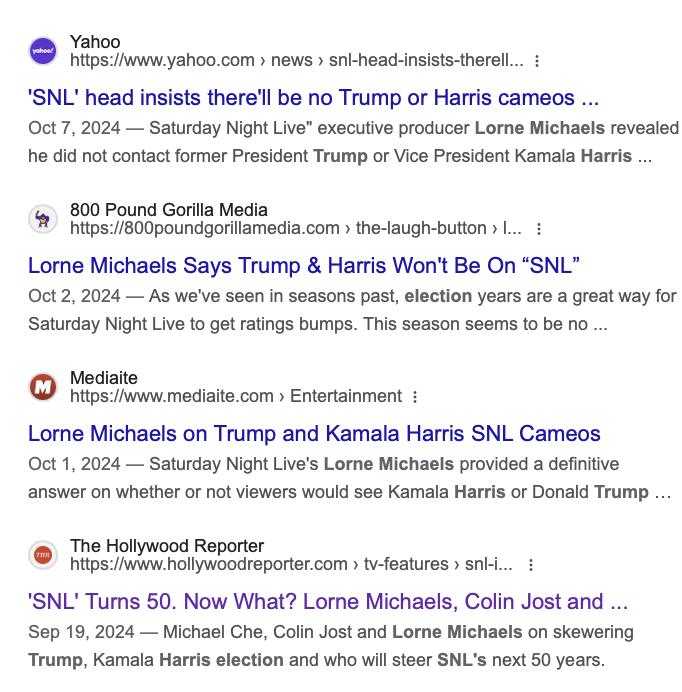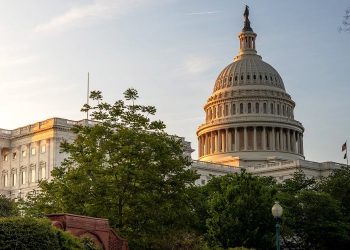When the story dropped about the FCC calling out Saturday Night Live for having Kamala Harris on the show, I desperately hoped conservative media wouldn’t fall for the obvious trap. I posted it on The Liberty Daily in column 3, which is the least seen section of the site. It’s news so it needs to be reported on but it will affect the decisions of exactly ZERO voters.
They did the skit, had FCC Commissioner Brendan Carr cry foul, and then sat back and watched as actual issues important to voters got pushed to the side of the news cycle on Sunday.
The executives at Saturday Night Live are not stupid. They knew exactly what they were doing and “risking,” which is why they did it. It’s all a distraction. They don’t believe they’re actually going to move the needle with voters. They and the Kamala Harris campaign want media, particular conservative media, to be crying foul about this instead of the actual shenanigans that affect this election. Unfortunately, it’s news so we have to cover it but I came very close to killing the story because it’s at the bottom of the list of crimes being committed on behalf of Team Commie.
Here’s Zero Hedge‘s report that includes extremely talented and influential patriot Michael Shellenberger spending hours “investigating” it…
In Addition to Not Being Funny, SNL May Have Violated Election Law With Kamala Cameo
Vice President Kamala Harris made a surprise appearance on “Saturday Night Live” last night – playing herself across from Maya Rudolph’s version of her in the show’s cold open.
Kamala Harris spent THREE HOURS rehearsing for this cringe fest on SNL.
Complete with the fake black accent.
This is a tough watch. Good Lord. pic.twitter.com/B3RbafOsH9
— Nick Sortor (@nicksortor) November 3, 2024
It was essentially an exact copy of Trump’s appearance in 2015, except not funny.
Kamala Harris SNL skit DIRECTLY copied Trump’s from 2015.
Can she do ANYTHING original at all? https://t.co/RX3zMprYfo pic.twitter.com/wwbdVJgig1
— Nick Sortor (@nicksortor) November 3, 2024
What’s more, it may have violated election laws.
As Michael Shellenberger points out, “The producer of Saturday Night Live said neither Harris nor Trump would appear on the show “because of election laws.” Last night, about 60 hours before polls open, he put Harris on the show in a warm & humanizing sketch. He and NBC violated the equal time provision of the law.”
On October 1, 2024, Hollywood Reporter published this article. It said, "In a recent interview ahead of the show’s 50th season, SNL creator and long-running maestro Lorne Michaels revealed that he hadn’t reached out to the real-life candidates, and he didn’t intend to before the… pic.twitter.com/3olU8qMmeT
— Michael Shellenberger (@shellenberger) November 3, 2024
Continued:
That article linked to a September 19 interview between Michaels and SNL cast members, Colin Jost and Michael Che. Weirdly, however, the September 19 does not contain the Lorne Michaels quote referred to in the October 1 Hollywood Reporter article. Even more weirdly, neither does the WayBack Machine’s first capture of the article on September 19.
The reason that’s weird is that many media outlets reported on Michaels’ statement in early October.
NBC clearly violated the law. In a 2022 fact sheet, FCC writes, “FCC rules seek to ensure that no legally qualified candidate for office is unfairly given less access to the airwaves – outside of bona fide news exemptions – than their opponent.”
I will interview @BrendanCarrFCC about this at 11:45 ET on an X Spaces— please tune in https://t.co/PaCiLoVUfP
— Michael Shellenberger (@shellenberger) November 3, 2024












